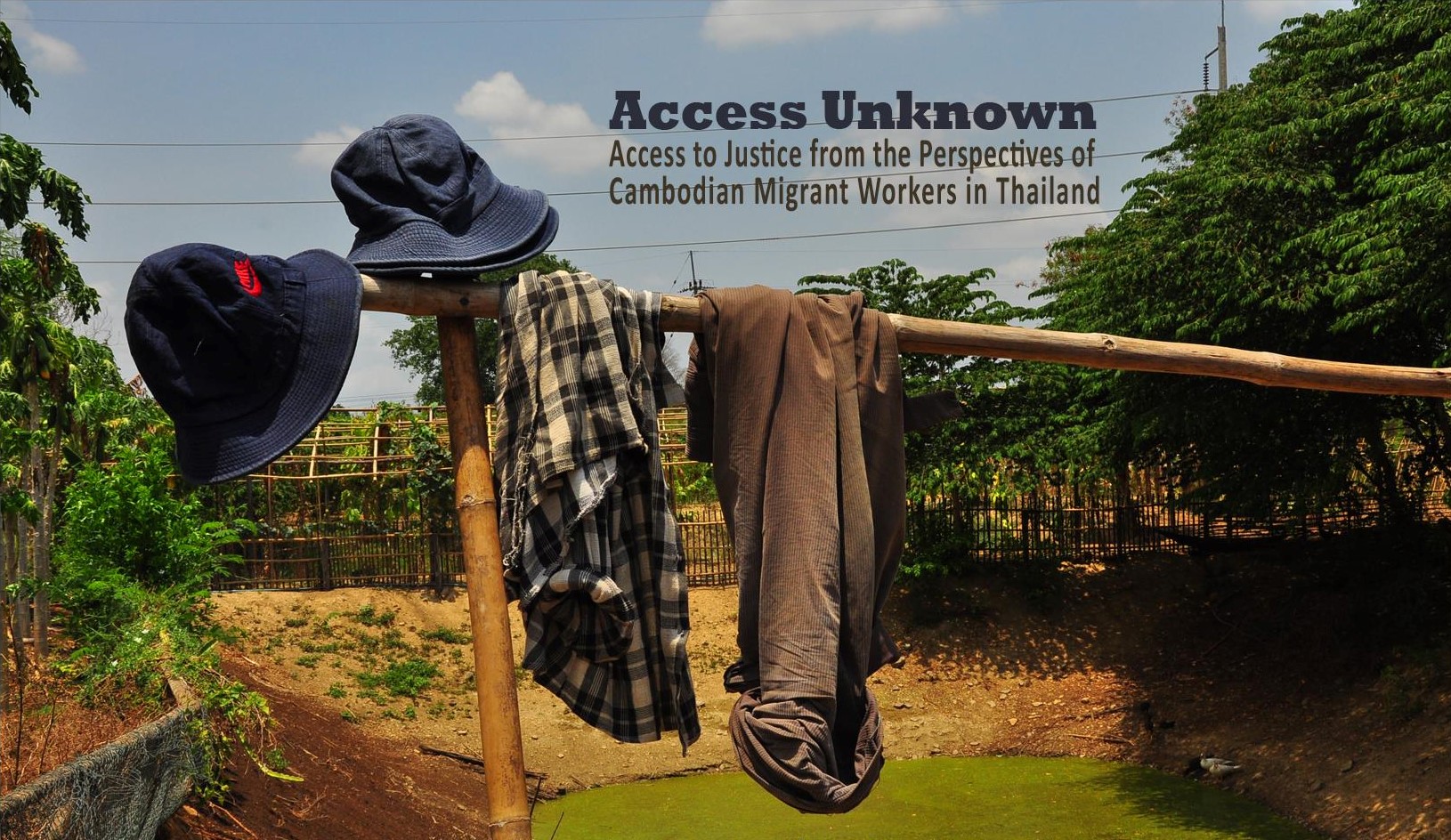Perspectives on and Access to Justice among Cambodian Migrant Workers in Thailand
Perspectives on and Access to Justice among Cambodian Migrant Workers in Thailand
No Trust, Few Options

Cambodian migrant workers in Thailand usually do not try to pursue justice after rights violations due to a lack of trust in the police and courts, research conducted by GAATW and partners found.
Lack of information about labour and migration laws and regulations was one factor among those interviewed that made them vulnerable to exploitation and human trafficking. When violations occurred they did not seek justice, either because they are undocumented and believe that this makes them ineligible for justice mechanisms or because they don’t believe they will receive a fair outcome against a Thai employer. Perceptions of what is just or fair among the migrant workers were often based on what had been agreed with a broker or employer, rather than what meets a minimum legal standard, the research found.
Interviewees spoke of lack of examples of success that might inspire their pursuit of justice - no one they knew had successfully accessed a fair resolution though the legal system. A number of workers spoke of having no other options than undertaking undocumented migration to Thailand again, despite knowing the risk of being overworked, cheated or facing physical abuse.
These are some of the main findings of our new research ‘Access Unknown: Access to justice from the perspectives of Cambodian migrant workers in Thailand’, which interviewed 59 migrant workers, men and women working in seven different industries, in Thailand and after returning home. This research aimed to examine why there is still such a significant disconnect between the currently available options in the legal system and Cambodian workers’ unwillingness or inability to practically access them.
Our project employed participatory methodologies, which included capacity building for service providers, and shared findings among key stakeholders formed a platform for future collaborative work between CSOs supporting migrants in Thailand and Cambodia.
These findings come despite increased resources and efforts in recent years dedicated to improving the conditions of migrant workers and addressing trafficking in Thailand. We hope that our research can help service providers to strengthen their engagement with migrant workers by understanding the challenges, motivations and needs of migrant workers.
Read the full report here.

